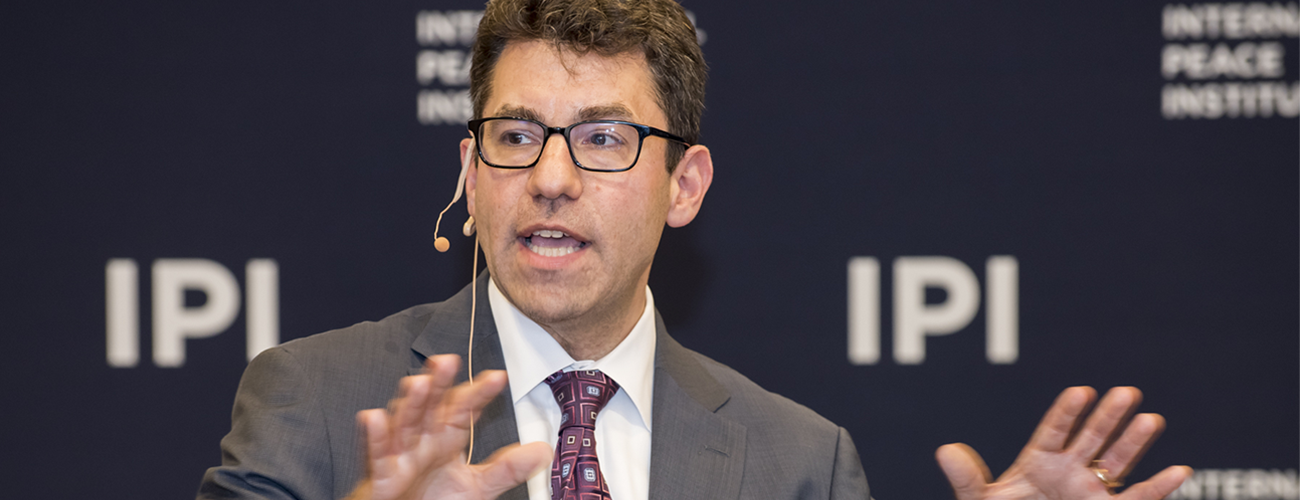Author Steven A. Cook joined IPI to discuss the key arguments of his book, False Dawn: Protest, Democracy, and Violence in the New Middle East at a May 17th Distinguished Authors Series event. The book focuses on the Arab Spring uprisings, which spread across the Middle East and North Africa from 2010 to 2013, but failed to spark democracy in the region.
“Every country in the region, with the exceptions of Qatar and the United Arab Emirates, experienced some form of social protest,” he noted, which led people to believe that this might be an analogue to the fundamental changes in European governance in 1989 that followed the collapse of Communism. “But it didn’t turn out to be that way,” he said.
Mr. Cook specifically focused on four countries affected by the uprisings—Tunisia, Egypt, Libya, and Turkey—and illustrated the unhappy aftermaths of each one.
“In Egypt,” he said, “We have resurgent authoritarianism that looks and feels a lot like Mubarak’s Egypt, but more repressive.”
He continued, “In Turkey, we have a case study in the reversal of liberalizing reforms,” he continued. “In Libya, we have fragmentation of the country. People thought Libya might have an easier route to democracy as Qaddafi bequeathed no institutions to the Libyan people, it was a blank slate on which to build democracy.”
As for the precarious situation unfolding in Libya, Mr. Cook pointed out that “Qaddafi’s son predicted precisely what was going to happen. He said, “Libyans, we must settle our differences because we’re not Tunisians and we’re not Egyptians. We will fight each other for the next 40 years.”
“The way things are going,” Mr. Cook said, “That’s a real possibility. We’re talking about a failed state.”
He acknowledged that Tunisia fared better in relative terms, but cautioned that there too the ultimate outcome was in doubt. “Tunisia has made great strides, but it is a country on the edge with extremist attacks, economic crisis,” he said. He expressed worry that Tunisia was “not far away from the reversal of what had been quite hopeful.”
Mr. Cook offered his account of why democratic change failed to take hold in these countries, saying, “There were no real revolutions in these countries. What happened in Egypt was a rebellion that resulted in a leadership change, not a change in the political and social institutions of the country.”
He identified this as a common thread throughout the four states, further pointing out that “aspects of the old order impinge upon the progress that Tunisians were making.” Acknowledging Tunisia’s status as “the darling of the Arab Spring,” Mr. Cook explained that, “The whole point of False Dawn is to contextualize the narratives that had prevailed in 2011.”
Emphasizing the dangers of continuing poor governance in these states, Mr. Cook said that extremism was a more likely result than democracy.
Evoking the specter of ISIS, he said, “In this environment, the call from Raqqa and Mosul makes sense to people. The Arab republics fell, the uprising fell, the Muslim Brotherhood in Egypt fell. To people trying to find their way in an overall regional environment of failure, extremism is appealing to them.”
Warren Hoge, IPI Senior Adviser, moderated the discussion.








